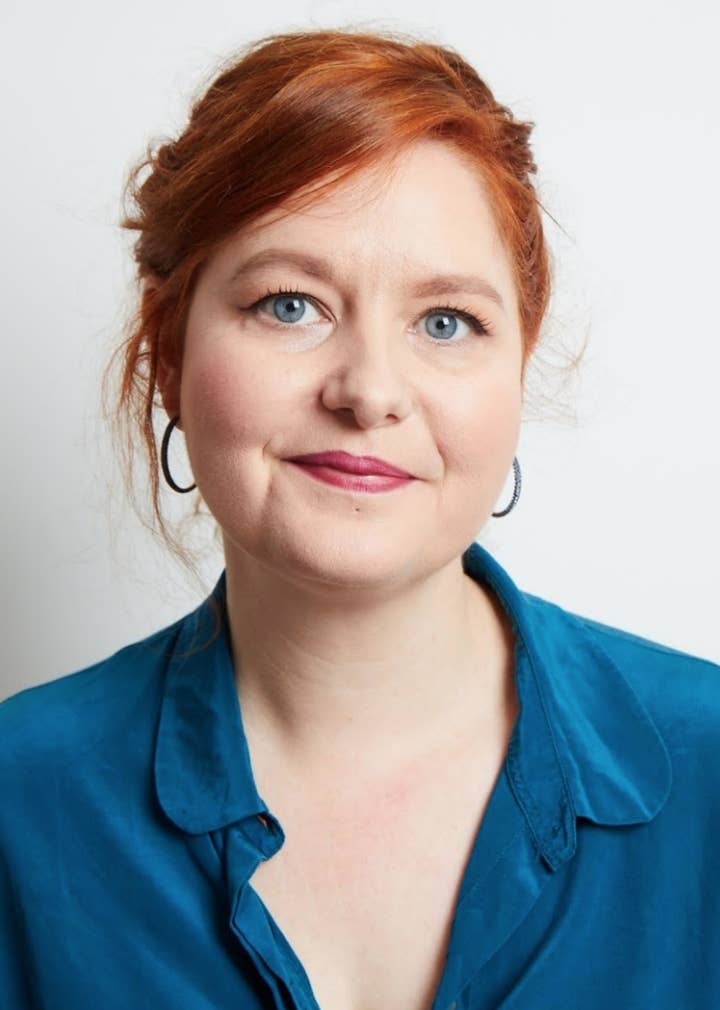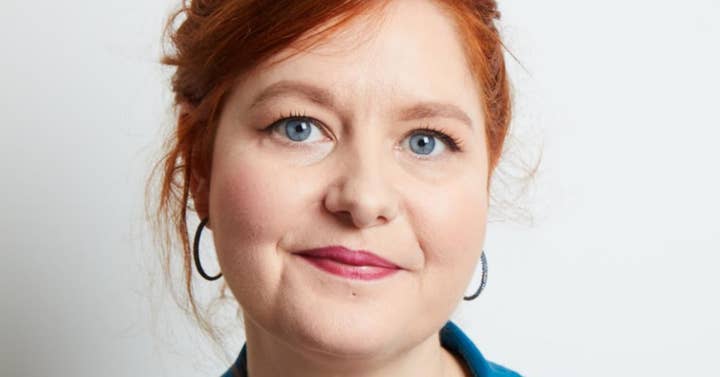Siobhan Reddy: "Progress has been made, but the issues haven't gone away"
The BAFTA-winning studio director of Dreams developer Media Molecule discusses the steady march to better diversity in the games industry
Hades may have been the big winner at this year's BAFTA Games Awards, but right alongside it was Media Molecule's Siobhan Reddy.
The studio director not only received the prestigious BAFTA Fellowship award, she was the first woman from the games industry to receive this accolade.
Joining the same club as industry legends like Shigeru Miyamoto, Hideo Kojima and Tim Schafer, Reddy was recognised for her "pioneering work on advocacy for diversity, inclusion and creative and collaborative working culture."

Telling GamesIndustry.biz she was "honored and very grateful" for the award, she also considers it to be a step forward for inclusivity itself as it "speaks to [BAFTA] wanting to bring in a much more diverse group."
Reddy also points to the work BAFTA does with the Young Game Designer awards, Breakthrough Brits and the BAFTA Guru initiative, adding: "I think they're really trying to make an effort to really bring more diversity into the film, television and games industries. I love the efforts that they make."
And she believes similar efforts can be seen across the business of games.
"If I think about the industry I joined all those years ago, it was a really different place," she says. "There's a lot of good progress that has been made.
"The issues haven't really gone away. We're all making strides to bring in more diverse groups of people, we're aiming to create studios that enable people to thrive within them -- and that's incredibly important.
"It's one thing saying, 'Oh, we want to bring people in' but it's another thing having the setup so you can ensure people can thrive. That's something I'm very passionate about, and I know a lot of other people are: enabling people to do their best work.
"The world is flawed. Sexism, racism, ableism -- these things are all real, and as an industry we deal with them, too. I'm hopeful by the amount of people and studios trying to tackle big subjects... We've all got a lot of work to do, and it is work. It's about making sure we find new ways to bring people into our industry."
Speaking about her own goals in her continued work to advocate diversity, she stressed the importance of not just making systemic improvements -- such as equal hiring and reevaluating practices around promotion -- but reiterated the need to ensure that creative work environments such as games studios give everyone the opportunity to contribute to a project and show off their best work.
"It's really important that we have an industry where people can exist and nothing exists that makes that hard based on any factor of their identity"
"For me, it's really important that we have an industry where people can exist and nothing exists that makes that hard based on any factor of their identity," she says. "There's a human element to that -- I believe in this because it's a good human thing for us to care about other people, but on the work side of that, diverse groups of people bring a wider set of perspectives and we make better work, more powerful and interesting work.
"We're part of the media and what we put out there represents some aspect of the world and what people take on."
And, she adds, this work is never finished. Cultivating a studio culture that enables everyone to thrive is a tick box that can be never be fully ticked since companies are constantly changing -- especially as they grow.
"Culture is not static," she says. "We're very different than we were in 2006 when we started -- we were nine people back then, and it's 95 now. But you can draw a line from there to now and it's still Media Molecule, even though we're very different.
"If I think about what I'm trying to achieve with the culture, which I think we do a pretty good job of, it's building a culture of belonging. That's important because we're an industry asking people to be creative, to do creative things. When people come in to collaborate with someone, there should be a sense of belonging, friendship and being in it together."
There are many aspects to what forms a studio's culture, but an important one for Reddy is sense of humour: "We need to remember to have a laugh. Ultimately, we're making video games -- it's entertainment."
Even the titles Media Molecule produces can, in their own way, assist in efforts to diversify the industry's workforce. From LittleBigPlanet to Dreams, the studio has specialised in games that tap into players' creativity, with the latter enabling people to make art, music, videos and even full games. Reddy says it lowers the barriers to entry for game development, or at least serves as an introduction to the process.
"The world is flawed. Sexism, racism, ableism -- as an industry we deal with them, too. I'm hopeful by the amount of people and studios trying to tackle big subjects"
"If you have a PlayStation, you can download Dreams and -- after some tutorials -- immediately start creating."
This, she says, harks back to the origins of Media Molecule -- co-founder Mark Healey got his start experimenting games on his Commodore 64 as a child, sparking an interest that led to a career in development and the formation of the Dreams studio.
"The mission is to share that love of making with people so they can find their own passion and share that with people," Reddy continues. "Maybe that goes on to a career -- we've certainly hired a bunch of people from the LittleBigPlanet community and now from the Dreams community. As we progress throughout the years, we'll be working more and more from the Dreams community."
Media Molecule is far from alone in granting players the ability to build their own titles. In addition to the array of accessible game engines available to students, some of the most popular games centre around creation -- from Minecrft to Roblox. And this, Reddy says, is nurturing an entire generation of potential new game makers.
"I think creative gaming is now a genre, and has been for a while -- it hasn't been formally made a genre but it is," she says. "Minecraft is basically like Lego now, it's embedded in popular culture.
"There are generations of young people that have grown up creating in the games they play and that's normal for them. For me, it was always more play-focused. But now young people are playing Roblox, Minecraft... and so many other games out there have creative components, whether it's building forts -- it's all about making creative choices. When I look back to when we started LittleBigPlanet, that wasn't the case. It is now, and that's fantastic."
As well as grateful, Reddy is also humble about her BAFTA win, emphasising the range of other industry professionals working towards the game goals.
"I don't feel like I've done nearly as much as other people, by the way," she says. "I think there are plenty of people working a lot harder and more consistently on this than I have... I've been really privileged in my life and career in many different ways. So there's been a journey of understanding privilege and what that means."

